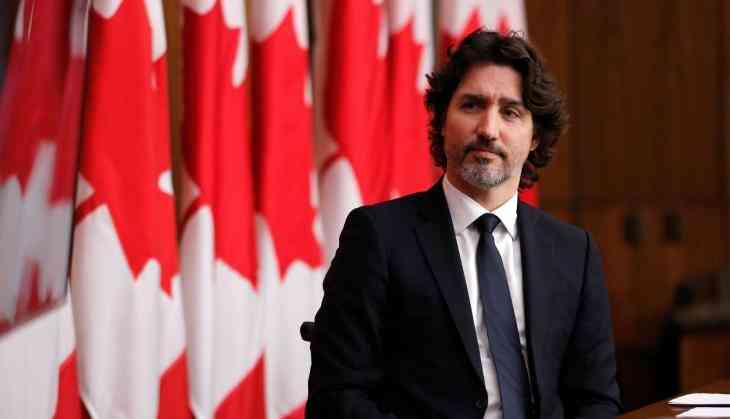
After China demanded an investigation into the discovery of the remains of indigenous children in Canada, Prime Minister Justin Trudeau has lashed out at Beijing, stressing that there was a difference between the matter and the communist country's systemic abuse against ethnic minorities including Uyghurs.
According to Canadian state broadcaster CTV News, Trudeau on Tuesday said that Canada knows its relationship with indigenous people is broken but it has a Truth and Reconciliation Commission and is working to try and address the issues. On the other hand, China is not even willing to admit that there is a problem over the numerous human rights abuses against Uyghurs.
"Where is China's Truth and Reconciliation Commission? Where is their truth? Where is the openness that Canada has always shown, and the responsibility that Canada has taken for the terrible mistakes of the past, and indeed, many of which continue into the present?" Trudeau asked at a news conference outside his Ottawa home Tuesday.
Earlier this month, the mass burial place of 215 children, aged from three years, was found at the site of a school, closed in 1978, near the Canadian town of Kamloops, Sputnik reported. Following the discovery of graves, a probe has been opened into the circumstances and the accountability of these fatalities.
The remarks came after Chinese diplomat Jiang Duan demanded an investigation during a meeting of the United Nations Human Rights Council (UNHRC), Washington Post reported.
"We are deeply concerned about the human rights violations against the Indigenous people in Canada," said Jiang, a senior official at China's mission to the UN in Geneva.
Jiang said China and its allies sought a "thorough and impartial investigation," not just of the discovery but of broader Canadian crimes against indigenous people. China's allies include Belarus, North Korea and Syria, all of whom are accused of human rights abuses.
Jiang's demand came before Canadian officials read a statement that called on China to allow the UN human rights chief access to the Xinjiang region to investigate more than one million Uyghurs who have been unlawfully detained there.
The statement also mentioned a continuing clampdown in Hong Kong under Chinese auspices and ongoing reports of repression in Tibet, according to Washington Post.
"We call on Chinese authorities to abide by their human rights obligations," said Leslie E Norton, Canada's ambassador to the UN in Geneva. The dueling demands represented a deep geopolitical and ideological divide at the top UN human rights body.
Meanwhile, in its strongest rebuke of China, the Group of Seven (G7) countries had urged China to "respect human rights and fundamental freedoms" in Hong Kong and Xinjiang.
The group called on China "to respect human rights and fundamental freedoms, especially in relation to Xinjiang and those rights, freedoms and a high degree of autonomy for Hong Kong enshrined in the Sino-British Joint Declaration and the Basic Law".
Meanwhile, China dismissed these remarks saying that the days when a "small" group of countries decided the fate of the world were long gone.
(ANI)
Also Read: SCO countries pledge to cooperate against terrorism, radicalism in NSA meeting


